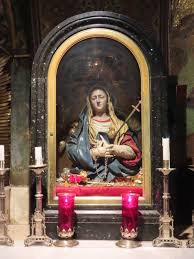
Introduction
Jerusalem stands as one of the most significant cities in the world, revered for its deep-rooted historical, cultural, and religious importance. It is a focal point for Judaism, Christianity, and Islam, drawing millions of visitors and pilgrims each year. Amidst ongoing geopolitical conflicts, understanding the dynamics of Jerusalem remains crucial for grasping the broader socio-political landscape of the Middle East.
Historical Significance
Jerusalem’s history spans thousands of years, with archaeological findings suggesting its existence as early as 3500 BC. The city holds profound meaning in Judaism as the site of the ancient Temple, Christianity for its association with the life of Jesus Christ, and Islam as the location of the Al-Aqsa Mosque. The interplay of these religions highlights Jerusalem’s unique character as a melting pot of faiths and cultures.
Recent Developments
In recent years, tensions in Jerusalem have been heightened due to political disputes, debates over sovereignty, and religious fervor. The city has witnessed both protests and peace initiatives, particularly related to access to sacred sites and the ongoing Israeli-Palestinian conflict. As of 2023, the situation remains volatile, influenced by global politics and local governance. For instance, the announcement of new settlements in East Jerusalem has sparked outcry from various international bodies and human rights organizations, emphasizing the need for diplomatic interventions.
Current Events
As the world continues to navigate the complexities of Jerusalem’s status, recent months have seen a rise in interfaith dialogues aimed at fostering understanding and cooperation among different religious communities within the city. Initiatives led by local NGOs and global interfaith organizations are attempting to bridge divides and promote peace in the region. The international community closely monitors these activities, as they could serve as a model for conflict resolution in other contentious areas worldwide.
Conclusion
Jerusalem remains a city of profound significance, not only geographically but also in terms of its historical and spiritual dimensions. With ongoing challenges and opportunities for reconciliation, the future of Jerusalem is pivotal not only for its residents but for the entire world. As discussions regarding its status and governance continue, the hope for peaceful coexistence among its diverse communities persists, emphasizing the city’s role as a symbol of humanity’s enduring quest for understanding and harmony.



